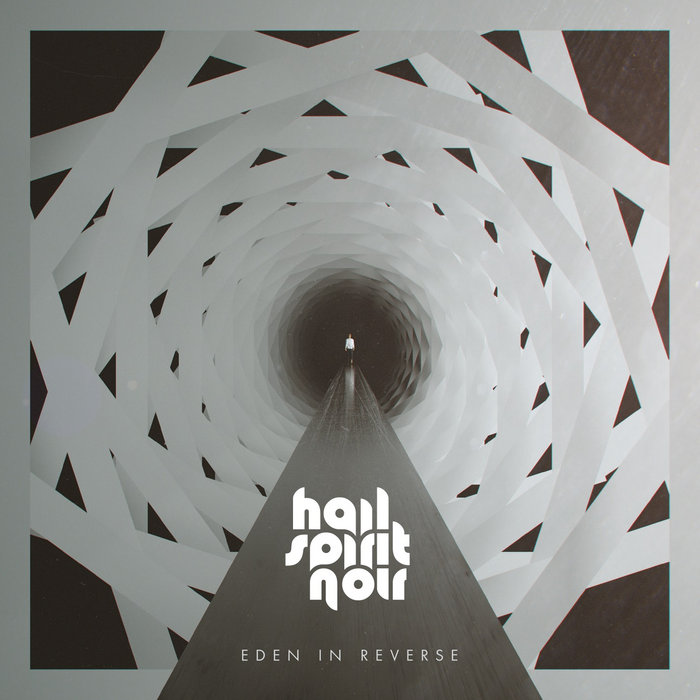
In a discussion about Enslaved with Eric several years ago, I remarked that I wished they would get rid of the harsh vocals and go fully clean, embracing their inner prog nerd, even for just one album. Eric scoffed, and apparently so did Ivar and Grutle, as the harsh vocals and black metal grit have remained. A decade later, Hail Spirit Noir have released the album that Enslaved wouldn’t.
This being their fourth album in a string of weirdly-evolving progressive black metal records, being surprised should be expected. But when the John Carpenter-esque keyboards kick in on opener ‘Darwinian Beasts’, it’s a jolt that will shake loose any expectations that this record will be anything like the rest of their catalogue. As we segue into the spaced-out, keyboard- drenched prog of ‘Incense Swirls’, bands like Hawkwind and Arcturus come to mind, but Enslaved is the closest touchpoint. If you can’t close your eyes and picture Herbrand Larsen singing on ‘The First Ape on New Earth’, then I’ll kindly ask you to check your copy of Axioma Ethica Odini at the door.
That said, there is quite a lot of variability throughout the album that pays off repeated listens. Notice the Still Life-esque chords of Opeth in ‘Alien Lip Reading’, and ‘Crossroads’ is the Failure song that Ken Andrews never wrote. But as they’ve done for their entire career, Hail Spirit Noir meld everything together so well that it never feels derivative, but rather a wholly unique amalgam that is truly like no other.
I’ve been a big fan of Hail Spirit Noir’s work since I stumbled upon Oi Magoi in 2014, and this is easily the best record they’ve ever done. If you like your metal with shades of black metal and a heaping dose of spaced-out weirdness, Eden in Reverse should be on your playlist immediately. I know it’s early, but it will take a lot to dislodge this from atop my year-end list.

I've not traditionally been a big fan of Hail Spirit Noir. They're one of a handful of bands Brian and I disagree on, leading to many a Thanksgiving table flipped during heated debate. I chalk it up to my disdain for the current 70's prog trend that's been polluting the black and death metal genres for the past five or ten years.
It's not that I object to 70's prog wholesale. Heck, I love the obvious King Crimson influence on Voivod, going as far back as Killing Technology. I'm on board with the experimental song structures and shifting time signatures. Structurally, I think it's been great for metal. But when the production starts thinning out, the Mellotrons and Hammond organs get cranked up louder than the guitars, and the three minute jam session kicks in halfway through a song already topping 10 minutes? You can count me out.
Which makes it all the more surprising that I really like this album. Ditching the growls was a good choice, and one I'm actually in favor of for most metal bands if they can swing it (I do think they are essential for Enslaved, and this idea I don't back down from). In Hail Spirit Noir's case, it helps move the band further towards a straight-up progressive metal style and negates my earlier impression of them as a black metal band with a 70's art-rock veneer.
The first half of the album is particularly strong. ‘Incense Swirls’ has a great driving riff that builds toward a trippy Oranssi Pazzuzu-esque midsection, before finishing with some sweet keyboards that remind me (strangely enough) of the video game Phantasy Star Online. ‘Alien Lip Reading’ keeps the momentum going, sounding a bit like one of Enslaved's trippier, mellower moments.
And then there's ‘Crossroads’ rounding out the trifecta, and it's a contender for metal song of the year for me. It's a really cool mashup of influences, both expected and unexpected, including Enslaved, Ghost, and Cynic. The guest vocals by Borknagar's Lars "Lazare" Nedland really take the song to the next level (I thought it was Damian Wilson on first listen—never a bad thing).
After this, the album loses a little steam for me, mostly due to your standard 70's prog excesses (looking at you, ‘The Devil's Blind Spot’ and ‘Automata 1980’). But I do think everything works here, even when it's not to my individual tastes.